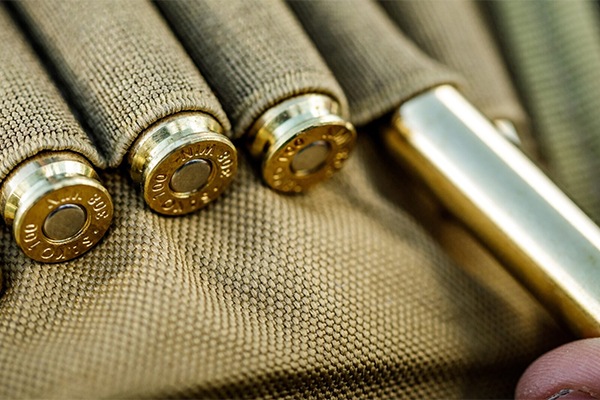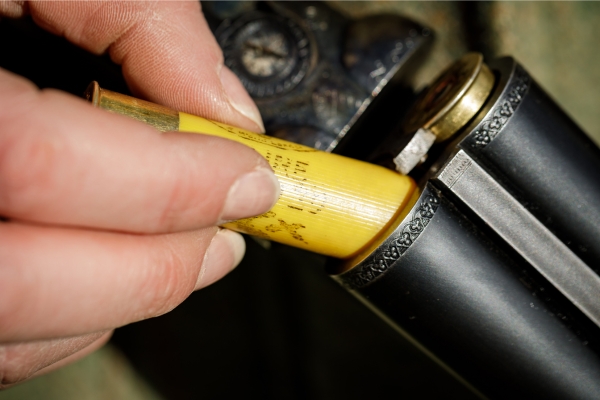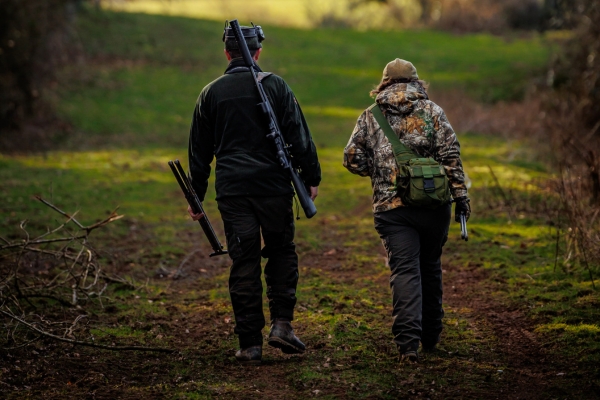
Lead ammunition restrictions – your questions answered
Read our answers to frequently asked questions about the planned lead ammunition legislation and what it means for shotgun, rifle and airgun shooters.
Get information on the legal shooting season for mammals and birds in the UK.
Apply for funding for your project or make a donation today
Comprehensive information and advice from our specialist firearms team.
Everything you need to know about shotgun, rifle and airgun ammunition.
Find our up-to-date information, advice and links to government resources.
Everything you need to know on firearms law and licensing.
All the latest news and advice on general licences and how they affect you.
Here you’ll find all our latest updates, advice and guidance relating to shotgun ammunition for use in live quarry and target shooting.

Read our answers to frequently asked questions about the planned lead ammunition legislation and what it means for shotgun, rifle and airgun shooters.

Read BASC’s statement in response to the Government’s announcement regarding restrictions on the sale and use of lead ammunition.

Read our explanation of the HSE’s proposals on restrictions for lead ammunition in more detail, plus BASC’s position on each.
We accept that there is an evidenced risk of primary exposure to birds, and risks to human health from lead gunshot. These were part of the rationale for announcing the five-year voluntary transition away from lead gunshot for live quarry shooting back in February 2020.
We consider elements of HSE’s justification of restricting the use of lead gunshot for live quarry shooting to be valid.
However, through scrutiny and challenge panels and the ongoing public consultation for the proposal, we will seek to influence any restriction proposals to ensure they are proportionate to the identified risk and come with realistic transition periods.
We do not believe that the evidence presented by the HSE justifies the restriction proposals in their current form.
The evidence presented in the dossier of risk from lead gunshot to soil, soil organisms, plants and livestock is not conclusive. Furthermore, there are existing regulations and directives that are retained in UK law which address these factors, including:
We therefore consider any further restrictions to be unnecessary and disproportionate.
Within proposals, HSE seeks to require containment and treatment of water run off on ranges where lead continues to be used, despite their report concluding that there is no risk within surface waters.
In addition, there are existing requirements in through the Water Framework Directive (Standards and Classification) Directions (England and Wales) 2015 and the Scotland River Basin District (Standards) Amendment Directions 2015.Further regulation that seeks to control this is not required.
There remains a risk of primary exposure to birds from consumption of spent lead gunshot. This risk would need to be managed; however, we argue that for many forms of clay pigeon/shotgun target shooting, this risk can be adequately controlled without the need for further legal restriction.
BASC will be making the case through scrutiny and challenge panels, and the ongoing public consultation, that the proposed restrictions are not justified by the evidence presented and are therefore unnecessary and disproportionate.
We will be seeking to avoid any unwarranted restriction and providing alternative proposals for how evidenced risks can be controlled without banning the use of lead gunshot for clay pigeon/target shooting.
Yes. The proposals are for an 18-month transition period for shotgun ammunition. That would allow the continued sale and use of lead shot for 18 months from the date any new law came into effect.
If the regulator takes forward a proposed derogation for the continued use of lead in clay pigeon shooting at licensed grounds, then a transition period of five years would apply. This extended transition period would apply to all use of lead shot; live quarry and clay pigeon.
The proposals call for a ban on the sale and use of lead shot. As such the proposals would mean that non-lead alternatives would have to be used for live quarry shooting.
No. The proposals provide no exemptions for using lead ammunition for live quarry shooting.
The proposals call for a ban on the use of lead bullets, including those of small calibre rifles (i.e. with a bullet diameter less than 5.6mm).
The proposed restrictions provide a derogation (exemption) which would allow the continued use of lead shot under a licensed system. The exemption would require the following:
It should be noted that a derogation is optional and may not be taken forward.
There is currently no detail on how the licensing system might operate, who would run the licensing system, and the eligibility criteria to obtain a licence.
The proposals call for a ban on the use of lead bullets, including those of small calibre rifles (i.e. with a bullet diameter less than 5.6mm). The ban is only for use outdoors and does not affect the use of lead ammunition on indoor ranges.
Based on the proposals, there would be at least 18 months in which to use up shotgun and large calibre rifle lead ammunition even after any law is passed. There would be five years in which to use up small calibre rifle bullets, airgun pellets and other lead projectiles not defined as lead shot after any law is passed.
The proposals also mention a buy-back scheme for lead ammunition, but there are no details of how this would operate at this time. The HSE suggests that such a scheme will be considered during the consultation process.
Within the restriction dossier, the Health and Safety Executive (HSE) has detailed a significant body of evidence of the lethal and sub-lethal effects of lead ammunition on birds.
The evidence relates to a ‘primary exposure pathway’ for birds who utilise a gizzard to grind up food as part of their digestive process. Usually these birds would consume grit, which would sit in the gizzard to aide the grinding of food items for digestion. In some cases, lead gunshot is mistakenly consumed.
Due to the grinding action and conditions within the gut, lead is taken up through the digestive tract. The lead uptake is proven to affect birds, from a range of sub-lethal impacts as well as ultimately causing their death if enough lead is ingested.
There is also a body of evidence presented in the restriction dossier about the impacts of lead on human health. Sub-lethal effects include neurotoxicity, kidney effects including renal disease and cardiovascular effects.
Although the evidence does not directly or solely attribute lead ammunition as a cause, either through primary or secondary exposure, lead is a ‘zero-threshold’ neurotoxin, which evidence shows has impacts on the IQ of children and ‘in-utero’ effects on a developing foetus.
Dietary exposure to lead in game meat is an means by which humans may consume lead, and it is clear from the evidence presented by HSE that existing meat processing practices cannot eliminate all lead contamination from game meat.
It is for these reasons that HSE are seeking to eliminate the risk of lead contamination in game meat reaching the human food chain.
We do not consider the evidence presented by HSE in the restriction dossier relating to secondary exposure to birds from lead ammunition to be conclusive. Based on the evidence presented, we do not consider restrictions related to this potential exposure pathway to be necessary or in line with the level of risk.
The CIP (Permanent Proof Commission) is an international body which lays down standards to which the British Proof Authority must adhere when proofing guns in the UK.
Standard steel shot cartridges are safe for use in any post 1954 nitro proofed gun. As proof testing is mainly predicated on chamber pressure, it follows that pellet composition material is not relevant to the proof test. Consequently, any post 1954 nitro proofed gun is highly unlikely to become “out of proof” if lead shot were to be banned or otherwise restricted. NB Standard Steel cartridges may not contain pellets larger than 3.25mm diameter.
As the CIP is silent on the matter of choke constriction for Standard Steel cartridges, it follows that they may be fired through any degree of choke.
In the case of High-Performance steel shot cartridges, the CIP issues guidance on choke which varies according to the gun’s bore size.
In the transitional period before any ban on the use of lead shot in Great Britain is imposed, the British Proof Authority may revise its proof test procedure, taking into account any input from the CIP.